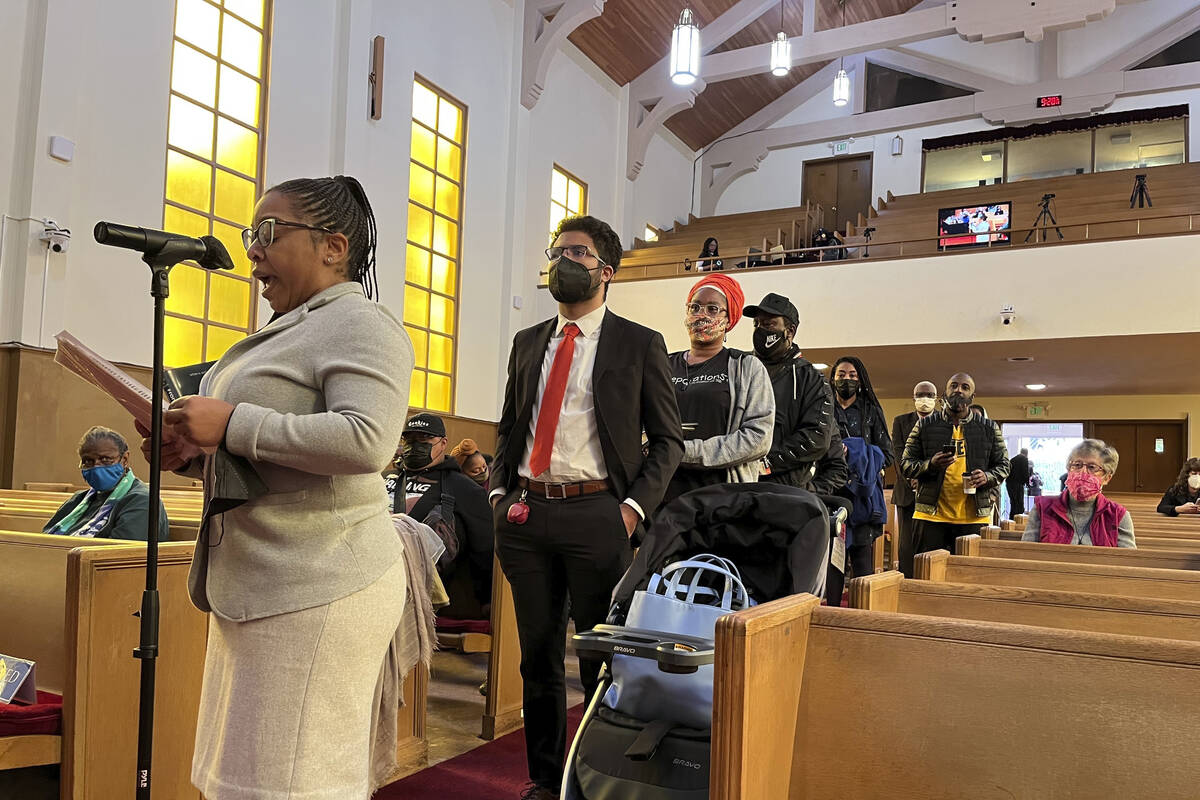RUBEN NAVARRETTE JR.: California’s next big storm: A battle over reparations
Having recently endured record snow and rain, California now faces another storm: a divisive conversation about reparations for descendants of enslaved Africans.
With separate reparation committees proposing $5 million payouts to Black residents of San Francisco and more than $300,000 to African Americans throughout the state, a lot of eyebrows are being raised.
Just because California’s nickname is the Golden State doesn’t mean the streets are paved with it.
As for the origin story, here’s the short version.
In 2020, California went all in with the reparations movement as a direct result of something that occurred more than 1,800 miles away: the murder of George Floyd by a Minneapolis police officer. That tragedy brought civil unrest and the destruction of property to dozens of U.S. cities, including many in California. Suddenly, racial equity and social justice were top of mind for state legislators, who passed a bill — later signed by the Democratic governor, Gavin Newsom — to create a first-in-the-nation reparations task force. The task force was instructed to study the issue, hear from experts and give the Legislature a report suggesting ways the state could atone for decades of unfair and discriminatory policies aimed at Black Californians. That report is due July 1, with its recommendations expected to top $300,000 per eligible resident.
The state task force has limited any reparations to descendants of Black people who were living in the United States as of the 19th century. In other words, Black immigrants need not apply.
Instead, the focus is on the harm Black Californians allegedly suffered because of property seizures by the government, devaluation of Black-owned businesses, housing discrimination, homelessness, health issues, mass incarceration and what the task force calls “over-policing.”
At the same time, San Francisco convened its own reparations committee, which recently issued 111 recommendations. The headline is the $5 million cash payment — which, according to Stanford University’s Hoover Institution, would cost each non-Black family in the city at least $600,000. There are also provisions to allow Black residents to buy family homes for $1 and provide an annual salary of $97,000 for 250 years.
As a lifelong Californian who happens to come from a tribe (Mexican Americans) that also suffered systemic discrimination — with the added indignity of being treated like second-class citizens on land, the Southwest, that once belonged to our ancestors — I have questions.
I’ll start with this one: Does it matter to proponents of reparations whether they have the support of the 94 percent of the California population that is not Black? If so, they should be careful not to cross the bridge from the feasible to the fantastical lest they torpedo this whole deal.
Meanwhile, some critics of reparations, a cohort that includes liberals and conservatives alike, say the whole concept is ridiculous because, well, California was never a “slave state.”
On his HBO show, “Real Time,” Bill Maher dismissed California reparations as “madness.” After all, the comedian claimed, “San Francisco doesn’t have a history of slavery or anything like that.”
Not so fast, funny man. It’s true that California entered the union as a free state in September 1850. But, as is usually the case with U.S. history, there is a lot more to the story. And when it comes to slavery, Californians’ hands are far from clean.
Even in 1850, Californians were not monolithic — especially on thorny issues such as slavery. The West was expanding, and that required a ready supply of labor. At the time, there were many Californians who supported slavery, or at least supported the right of Americans to enslave people. As historians have noted, Southerners who went West to seek their fortune in the California Gold Rush naturally brought their human property with them.
Also, California had by then become home to transplants from the South who held prominent positions in the Legislature and judiciary. In 1852, pro-slavery Californians petitioned the Legislature to establish a permanent slave colony in the state. Others proposed that California be split in two, with the northern half remaining a free state and the southern half becoming a slave state.
That same year, the Legislature passed its own version of one of the most odious pieces of legislation in U.S. history. The California Fugitive Slave Act of 1852 brushed aside the anti-slavery clause in the state constitution and required law enforcement officers to apprehend runaway enslaved people and return them to their owners.
New rule: Going forward, history professors shall not do stand-up comedy, and comedians must avoid giving lectures on history.
Ruben Navarrette’s email address is crimscribe@icloud.com. His podcast, “Ruben in the Center,” is available through every podcast app.




























